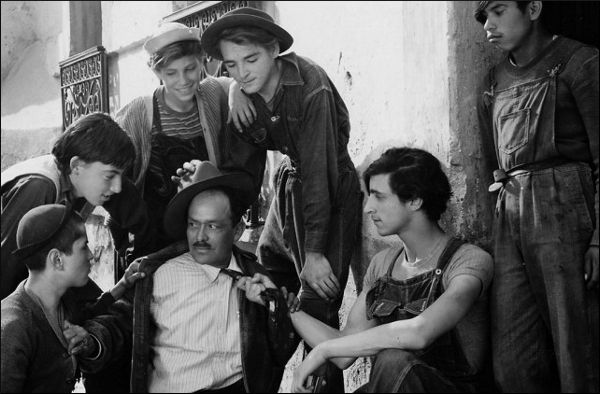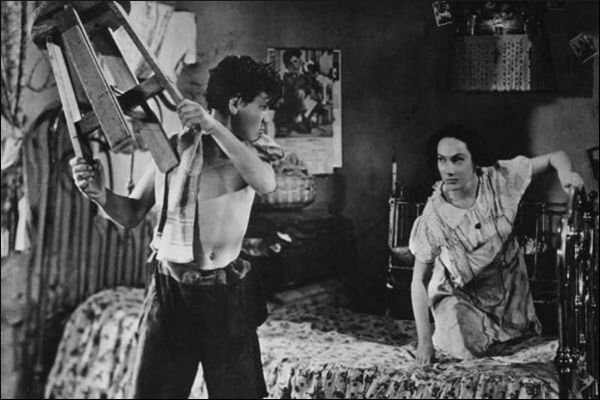One of the most critically revered Mexican films of all time, Luis Buñuel’s Los Olvidados is a landmark of world cinema that continues to surprise viewers even today. It was released in 1950, after producer Óscar Dancigers, impressed with Buñuel’s previous output, told him to make “a film about the poor children of Mexico.” The Spanish director, who had decided to remain in the American continent after Franco’s dictatorship took hold of Spain, spent around six months researching and walking around the slums of Mexico City. He then wrote the script with the collaboration of Jesús Camacho, who was from Guadalajara and who made sure the dialogue was properly Mexican .
"When the movie premiered, it proved scandalous and most viewers avoided it. Many thought it didn’t portray Mexico City as it really was, or rather, as they would have liked it to have been portrayed."
When the movie premiered, it proved scandalous and most viewers avoided it. Many thought it didn’t portray Mexico City as it really was, or rather, as they would have liked it to have been portrayed. At any rate, they did not approve of such pessimistic content. Within a week, the movie was pulled from theaters, although it had a few vocal supporters, most notably the famous Mexican writer Octavio Paz. However, when Los Olvidados screened at the Cannes Film Festival in France, Buñuel was showered with accolades and a Best Director prize, which helped reverse the critical tides. Back in Mexico, after its international success, the movie returned to theaters and this time enjoyed a strong public showing. Since then it has received almost unanimous praise, and in 1994, when the Mexican magazine Somos counted down the best 100 Mexican films ever made, Los Olvidados came in at N° 2.

Although its international title is The Young and the Damned, the original Spanish translates literally into “the forgotten ones,” which is far better. The characters in this movie aren’t just young or damned; they have also been forgotten by society. After a narrated opening sets the stage, we are introduced to our protagonists: a band of children and adolescents surrounded by ruined buildings and dusty streets. El Jaibo has just run away from juvenile hall and is itching to find the boy who got him in trouble with the law, Julián. The younger Pedro, a fellow gang member, helps El Jaibo track down Julián, and the lives of all three spiral out of control when El Jaibo kills Julián and Pedro finds himself implicated in the murder. For the remainder of the film, Pedro is under the watchful gaze of El Jaibo, who doesn't want the only witness to his crime to mention what he saw to anyone. And so, despite the constant tension between them, both go on with their poverty-stricken days and nights.
"The characters in this movie aren’t just young or damned; they have also been forgotten by society."
Right away, Camacho’s influence in the script is noticeable. The boys talk with a slangy, thick Mexican accent that many native Spanish speakers will find difficult to understand without subtitles. Some might even need a dictionary to appreciate the richness of the regional dialogue. One character says that his mom “me tiene tirria” or, in other words, is "really angry at him." Another says to his pals that “nos estamos vicenteando” or that they’ll see each other soon. In another scene, El Jaibo remembers that “me pelé” or that he ran away from juvenile hall, and later he tells a girl that she has become “muy chula” or "very cute" (although these expressions are not exclusive to Mexico). Other common words are “orale” (which signifies that something has been understood or that something is surprising) and “ora” (which can mean “now” or can express opposition to something or someone), scattered liberally throughout the script. Los Olvidados, in part, is about capturing the feeling and experience of slum life in Mexico City, and the dramatic story of El Jaibo and Pedro is just one of the tools Buñuel and Camacho use to convey their themes. Another tool, among many in this complex film, is obviously the language and how the characters use it to interact in the forgotten outskirts of the Mexican capital.





